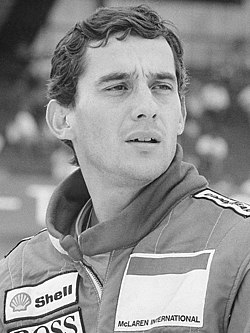
Introduction
Ayrton Senna, a name synonymous with excellence in motorsport, was a Brazilian racing driver who is widely regarded as one of the greatest Formula One drivers of all time. His exceptional talent, passion for racing, and tragic demise in 1994 at the Imola Grand Prix continue to resonate within the racing community and beyond. Senna’s legacy is not only significant for his achievements on the track but also for his humanitarian efforts and the impact he had on aspiring athletes around the world.
The Early Years
Born on March 21, 1960, in São Paulo, Brazil, Ayrton Senna’s racing career began at an early age, using his father’s go-kart. His talent quickly emerged, and he competed in various karting championships before moving to England in the early 1980s to pursue a professional career. Senna made his Formula One debut in 1984 with the Toleman team, where he showcased his skills in challenging weather conditions, notably finishing second at the Monaco Grand Prix despite driving a less competitive car.
Rise to Fame
Senna’s rise through the ranks was meteoric. In 1988, he joined McLaren, a team that would become synonymous with his success. That year, he won his first World Championship, and in 1990, he secured his second title. His rivalry with British driver Alain Prost became one of the most famous in motorsport history, characterized by intense competition and dramatic clashes. Senna’s prowess in wet conditions, especially at the Monaco Grand Prix, earned him legendary status and various records, including the most pole positions for a time.
Humanitarian Efforts
Beyond his achievements on the track, Ayrton Senna was known for his philanthropic efforts. Following his death, his family established the Ayrton Senna Institute, which aims to improve educational opportunities for underprivileged children in Brazil. Today, it has helped millions of children gain access to quality education, reflecting Senna’s commitment to making a positive impact on society.
The Tragic End and Legacy
The Formula One community was rocked by Senna’s fatal accident during the 1994 San Marino Grand Prix, which led to widespread safety reforms in the sport. His legacy is commemorated not only through racing victories but also through the lessons learned regarding driver safety. Each year, memorials and tributes are held, reminding fans of his incredible contributions and the spirit he brought to racing.
Conclusion
Ayrton Senna’s life and career continue to inspire millions around the world. As we reflect on his extraordinary achievements and enduring legacy, it serves as a reminder of the power of talent, dedication, and compassion. Senna’s story is one of triumph, tragedy, and transformation within the world of motorsport, illustrating that his impact will be felt for generations to come.
You may also like

Lando Norris: The Rising Star of Formula 1

The Inspiring Rise of Sasha Riley in Entertainment

Abhishek Sharma: The Next Big Thing in Indian Cricket
SEARCH
LAST NEWS
- Remembering Wendy Richard: The Promise to Co-Star Natalie Cassidy
- How Did Anglian Water Achieve an ‘Essentials’ Rating for Mental Health Accessibility?
- Shai Hope Leads West Indies in T20 World Cup Clash Against South Africa
- What We Know About Weston McKennie: Future at Juventus and Past at Leeds
- What We Know About the Upcoming Live Nation Antitrust Trial